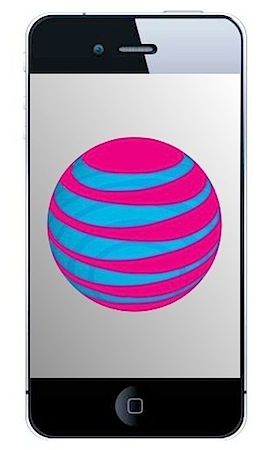AT&T's deal to buy T-Mobile USA has already caused plenty of discussion. But is there a simple secret at the heart of the deal? Is this really all about the iPhone 4G in 2012?

AT&T's definitive agreement, for just shy of $40 billion in cash and stocks, has the entire tech world talking. There's speculation about what the alliance may achieve--and one big bonus may be better cellphone coverage for users in the key New York and San Francisco areas, since the linked cellphone network will contain more towers per square mile than before. Very soon after the news arrived, there was hot speculation that the deal was largely prompted by Apple's iPhone 4, and specifically by AT&T's desire to boost its network to compete with the new Verizon iPhone 4. This of course would enable many millions more U.S. consumers (folks tied to T-Mobile, or who prefer that network) to buy Apple's wonderphone. Those hopes were quickly quashed when T-Mobile said it will remain independent, albeit under AT&T's stewardship, for around a year, and it won't offer the iPhone to its customers in that time.
But here's the thing: The joining of AT&T and T-Mobile pairs the U.S.'s second and fourth biggest cell phone networks, creating a new monster company that would be the biggest by far--beating Verizon's approximately 300 million users by a large margin. And while AT&T and Verizon are busy pushing forward on its 4G long term evolution upgrade to bring about the next generation of mobile data phones, T-Mobile actually has the largest existing 4G infrastructure in the U.S. By buying into T-Mobile, AT&T is setting itself up to take the lead in the race to 4G coverage.
Which suggests that, yes, this acquisition all about the iPhone 4G.
Okay, maybe not all, exactly--the deal will cover a thousand different business arguments, and the resulting cell phone company would serve millions of users who couldn't care less about Apple's product. But the original iPhone revolutionized the entire smartphone business, and was an AT&T exclusive resulting in countless billions of dollars of income for the network. The initial phone wasn't a 3G edition, but AT&T was busy implementing its 3G infrastructure, and Apple knew the GSM standard the company was using was way more popular around the globe than Verizon's CDMA protocols. That made AT&T more attractive, from an economies-of-scale in manufacturing point of view, than the much bigger Verizon customer base.
Most thinkers are suggesting Apple's iPhone 5 for 2011 won't adopt 4G technology because, much as with the original iPhone, the network infrastructure just isn't in place yet. Instead the phone will be an evolution of the iPhone 4, with better features and one or two bonus "extras" (possibly including NFC) to keep the device at the cutting edge. But the iPhone 6 for 2012 may be a different affair. If Apple follows its habits, it'll be another design revolution, and it may well embrace 4G technology, which will be far more ubiquitous by then--and Apple will need to make its move precisely at this point, before Google's Android OS swallows up too much of the early 4G market (there're already rumors about the Nexus S 4G).
So, can we picture AT&T's executive team having a few quiet phone calls with Apple's management team right about now? They'd be able to say things like: "Next year we'll be the biggest network in the U.S., and we'll have a very mature 4G system in place. So...how about talking to us about a new exclusivity arrangement, eh?"
Think of it as a gold rush for the 21st Century: AT&T already knows the iPhone's gold status, and it can see the next-gen 4G one being even more valuable, what with consumers continuing to throng to Apple and increasingly using smartphones. The enhanced mobile Net experience on 4G would seem an ideal fit for the iPhone technology--it's exactly the kind of breakthrough change in a market that Apple would love to embrace, and PR the heck out of its innovative uses of 4G data.
Comments
Post a Comment